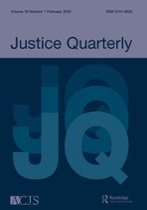Some theorists argue that coercion’s consequences depend upon the consistency with which it is experienced. This study measures the consistency of coercive experiences across social domains and lifespan stages then tests hypotheses linking coercion’s consistency to crime, prosocial behaviors, and depressive symptoms using data from randomly selected respondents in Ukraine and Bangladesh. Descriptive analyses test theoretical claims that erratic coercion generates crime while oppressive coercion deters crime, but at the cost of suppressing prosocial behaviors and exacerbating depressive symptoms. Findings show positive associations between projected criminal behavior and coercion’s magnitude, and between relative erratic but not absolute erratic coercion and projected criminal behavior. Oppressive coercion is linked to more depressive symptoms and, contradicting theoretical expectations, higher levels of criminal intent. Overall, this study’s findings challenge widespread reliance on coercive controls to influence social outcomes by documenting higher levels of projected criminal behavior and mental health problems among more coerced respondents.
The Costs of Coercive Control: Assessing Behavioral and Mental Health Correlates of Erratic and Oppressive Coercion
The Costs of Coercive Control: Assessing Behavioral and Mental Health Correlates of Erratic and Oppressive Coercion
- Jonathan Brauer, Charles R. Tittle, Olena Antonaccio
- Publication Date
2017 - Website
- View publication details


 The College of Arts
The College of Arts